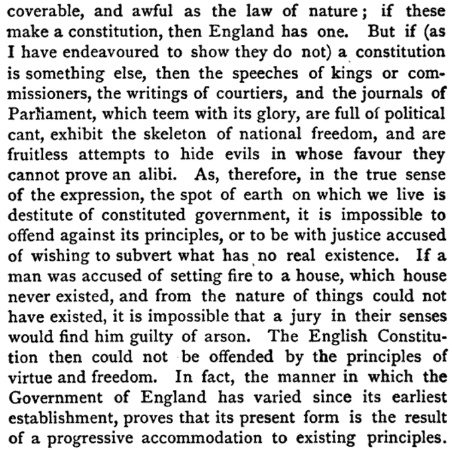Here is the hoped-for treatment.
Some seem preoccupied with defining the true expression of Cursedianity and Mohammedanism. Do Icicles (ISIS) count as real Mohammedans? Which mini-schism of the “Cursedian” faith is more faithful to the befuddled fide?
But in what sense does the question even make sense? Those internally inconsistent non-systems are manmade, motivated by rebellious pride, manifestly false, changing, self-serving, and so on. The phrase “the true X” implies X is out there, or this conforms to a single, ultimate standard of same.
It’s like asking about Iyov, according to the opinion in Chazal he never existed (Bava Basra 15a): What was his great-grandfather’s equity? What was Iyov’s sister’s name? Did Iyov have a good sense of direction around Utz?
I need to study Philosophy of Language…
So are they asking what people with X label, in fact, do? What the various founder\s intended at various times (presumably accounting for differing instructions to different people)? What people with X label did at first? What the first version of doctrine said?
Well, why should youth matter? And who cares, exactly? If you are, uh, “in it”, well, “true” Cursedianity\Mohammedanism is whatever Cursedianity\Mohammedanism is sadly (and elsewhere incomprehensibly) “true for you“! And if you’re not, again: Please explain the question.
Q: What is true human behavior? A: Human Behavior!
Everything outside Judaism is the same story: Anti-Judaism. There is no personal subscription or commitment or “belonging” to anything beyond oneself since neither of these schizophrenic “religions” is monotheistic (even if Mohammedanism isn’t idolatrous, Chazon Ish Shvi’is 24:3). Nothing inside our panentheistic world is “beyond oneself”. (Atheistic commitment to one’s self is either a contradiction in terms or self-deification.)
Here is a related Gemara in Shabbos 116a-116b:
הוה ההוא פילוסופא בשבבותיה דהוה שקיל שמא דלא מקבל שוחדא בעו לאחוכי ביה אעיילא ליה שרגא דדהבא ואזול לקמיה אמרה ליה בעינא דניפלגי לי בנכסי דבי נשי אמר להו פלוגו אמר ליה כתיב לן במקום ברא ברתא לא תירות אמר ליה מן יומא דגליתון מארעכון איתנטלית אורייתא דמשה ואיתיהיבת ספרא אחריתי וכתיב ביה ברא וברתא כחדא ירתון למחר הדר עייל ליה איהו חמרא לובא אמר להו שפילית לסיפיה דספרא וכתב ביה אנא לא למיפחת מן אורייתא דמשה אתיתי [ולא] לאוספי על אורייתא דמשה אתיתי וכתיב ביה במקום ברא ברתא לא תירות אמרה ליה נהור נהוריך כשרגא אמר ליה רבן גמליאל אתא חמרא ובטש לשרגא.
Soncino translation:
Imma Shalom, R. Eliezer’s wife, was R. Gamaliel’s sister. Now, a certain philosopher lived in his vicinity and he bore a reputation that he did not accept bribes. They wished to expose him, so she brought him a golden lamp, went before him, [and] said to him, ‘I desire that a share be given me in my [deceased] father’s estate.’ ‘Divide,’ ordered he. Said he [R. Gamaliel] to him, ‘It is decreed for us, Where there is a son, a daughter does not inherit.’ [He replied], ‘Since the day that you were exiled from your land the Law of Moses has been superseded and another book was given, wherein it is written, ‘A son and a daughter inherit equally.’ The next day, he [R. Gamaliel] brought him a Lybian ass. Said he to them, ‘Look at the end of the book, wherein it is written, I came not to destroy the Law of Moses nor to add to the Law of Moses, and it is written therein, A daughter does not inherit where there is a son. Said she to him, ‘Let thy light shine forth like a lamp.’ Said R. Gamaliel to him, ‘An ass came and knocked the lamp over!’
And here is Percy Bysshe Shelley saying the same thing as me:

So there…
P.S.
A reader asks: Why the prejudicial words, accusations flung, and aspersions cast?
I use “prejudicial words” because of the Gemara mentioned here. I plan, hopefully, on expanding more on this soon.
By the way, we referenced the above article in our free, special ebook on answering atheists. To receive the full Hebrew ebook, subscribe to Hyehudi’s Daily Newsletter here.
